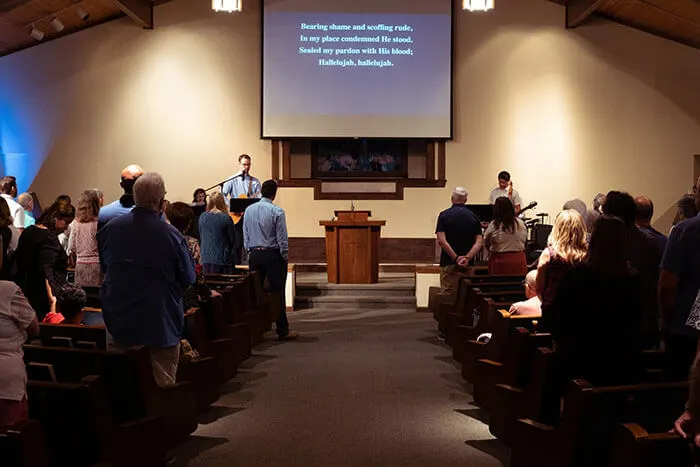As we gather to worship, we desire to experience an authentic encounter with our living God. God is seeking people who will worship him in spirit and in truth. (John 4:23)

The proclamation and explanation of God’s word is the main element in worship. It informs everything else that we do and is God’s main appointed means of building his church. Worship is a personal experience with God in the heart of the believer, but is most often described as occurring in the context of the gathered church (Hebrews 10:25). The best definition of worship that I have found was penned by William Temple:
“Worship is the submission of all our nature to God. It is the quickening of the conscience by his holiness; the nourishment of the mind with his truth; the purification of the imagination by his beauty; the opening of the heart to his love; the surrender of the will to his purpose – and all this gathered up in adoration, which is the most selfless emotion of which our nature is capable and therefore the chief remedy to that self-centredness which is our original sin.”
Our worship includes the reading of God’s Word, prayer, preaching/teaching God’s Word, Lord’s Supper, baptism, and singing songs to God (Colossians 3:16). Music is important for praising God as well as for teaching. Our worship song selection includes Psalms (Scripture songs), hymns (songs of bible doctrine), and spiritual songs (songs of testimony and of present Christian experience).
We believe that a wide variety of styles can be used in worship music; however, the emphasis on choosing music for worship should first and foremost be the message of the song – it must be biblical. While the style can vary from traditional to contemporary, the style should compliment the message of the song. When the focus of the music is the worship of God through Jesus Christ, arguments that focus on style are properly seen as matters of preference; in which, mature Christians allow plenty of room for one another.
